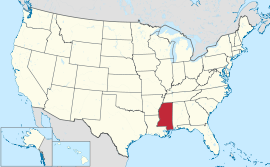
Great news! Effective January 1, 2014, all
Illinois schools that choose to teach sexuality education will have to teach comprehensive sex education to their students, thanks to
Democratic Governor Pat Quinn who is expected to sign
House Bill 2675 into law in the coming weeks. This bill essentially
bans abstinence-only curriculum from the classroom. Illinois is
ranked 27th in the US for teen birth rates, and 22nd in teen pregnancy rates. Perhaps Illinois schools should stock up on sexuality education curriculum from the
Sex Ed Store!
 Two parents, along with the American Academy of Pediatrics California District IX, and the Gay-Straight Alliance Network are suing the Clovis Unified School District in Fresno, California. Represented in part by the American Civil Liberties Union, they brought this lawsuit against the school district for violating the state’s comprehensive sexuality education law. They have recently updated their suit because the district passed curriculum, despite parents’ objections. Curriculum continues to evade information on condoms and contraception, and supports hetero-normative and gender biases and stereotypes. The initial lawsuit was brought in August of 2012, and the hearing regarding this update will not be heard until sometime in 2014. In the meantime, California youth in this district can visit Go Ask Alice or Scarleteen for comprehensive sexuality information since it looks like they won’t be getting it in their schools for some time.
Two parents, along with the American Academy of Pediatrics California District IX, and the Gay-Straight Alliance Network are suing the Clovis Unified School District in Fresno, California. Represented in part by the American Civil Liberties Union, they brought this lawsuit against the school district for violating the state’s comprehensive sexuality education law. They have recently updated their suit because the district passed curriculum, despite parents’ objections. Curriculum continues to evade information on condoms and contraception, and supports hetero-normative and gender biases and stereotypes. The initial lawsuit was brought in August of 2012, and the hearing regarding this update will not be heard until sometime in 2014. In the meantime, California youth in this district can visit Go Ask Alice or Scarleteen for comprehensive sexuality information since it looks like they won’t be getting it in their schools for some time.


And from
Malawi to
Mississippi, can teens be paid not to have sex?
The Atlantic discusses this tactic as a way to diminish Mississippi’s high teen birth rates (55 per 1,000 births), the highest in the nation. Teens in Malawi prove it can work, where rates average 177 per 1,000 births. Mississippi’s sexuality education is abstinence-only, and in a culturally conservative and socioeconomically deprived area of the country. Teen pregnancies cost the state $155 million per year, according to the
Women’s Fund of Mississippi, so perhaps this is something to seriously consider. If youth are paid to attend sexuality education programs outside of the classroom, learn comprehensive sexual health behaviors and attitudes, and implement them in their own lives, maybe Mississippi will see teen pregnancy and birth rates reduce over time.
Join the CFLE mailing list to stay on top of sex ed news and information:
Follow us on twitter at: @SexEdNetwork

 Two parents, along with the American Academy of Pediatrics California District IX, and the Gay-Straight Alliance Network are suing the Clovis Unified School District in Fresno, California. Represented in part by the American Civil Liberties Union, they brought this lawsuit against the school district for violating the state’s comprehensive sexuality education law. They have recently updated their suit because the district passed curriculum, despite parents’ objections. Curriculum continues to evade information on condoms and contraception, and supports hetero-normative and gender biases and stereotypes. The initial lawsuit was brought in August of 2012, and the hearing regarding this update will not be heard until sometime in 2014. In the meantime, California youth in this district can visit Go Ask Alice or Scarleteen for comprehensive sexuality information since it looks like they won’t be getting it in their schools for some time.
Two parents, along with the American Academy of Pediatrics California District IX, and the Gay-Straight Alliance Network are suing the Clovis Unified School District in Fresno, California. Represented in part by the American Civil Liberties Union, they brought this lawsuit against the school district for violating the state’s comprehensive sexuality education law. They have recently updated their suit because the district passed curriculum, despite parents’ objections. Curriculum continues to evade information on condoms and contraception, and supports hetero-normative and gender biases and stereotypes. The initial lawsuit was brought in August of 2012, and the hearing regarding this update will not be heard until sometime in 2014. In the meantime, California youth in this district can visit Go Ask Alice or Scarleteen for comprehensive sexuality information since it looks like they won’t be getting it in their schools for some time.








